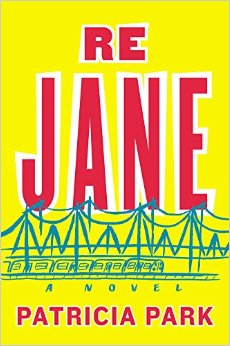
![]()
Patricia Park’s debut novel, Re Jane, is being heavily marketed as a modern twist on Charlotte Brontë’s classic novel Jane Eyre. Read this way – especially as a fan of Eyre – Re Jane may be a disappointment. But read on its own merits as a coming-of-age story with thoughtful commentary on family and culture, it makes for an interesting read.
Why does it not work in the context of Jane Eyre? For me, it’s primarily about the love story. In the classic novel, the passionate angst and tragic choices are a sweet torture between Jane and Edward Rochester. Jane is an innocent in their love story, and though Edward’s actions are villainous, they are easy to understand.
But in the Re Jane version, Edward is clearly married, though bored with his wife and work. He and Jane – their newly hired live-in nanny – share late-night food and conversation at the family’s dining table, but the exchanges don’t seem meaningful or emotionally charged. There is little chemistry or impact in the writing of them. And yet, suddenly they are in love, and fooling around. Making eyes at each other over the heads of Ed’s wife and their adopted daughter during breakfast in the kitchen. It was entirely unappealing to me as a reader, and nowhere near an appropriate comparison to Jane Eyre‘s central love story.
Aside from this, and a handful of other parallels that just don’t translate, Re Jane is more enjoyable in its own right. Strip away the homage to Jane Eyre, and you’re left with Park’s sharp insights on the boroughs of Queens and Brooklyn, and Jane’s experience as a Korean-American. The angst here is not so much in the love story, but in the story of Jane trying to discover who she is within the Korean community. This is where Park’s writing and narrative shine – in the food, the conversations, the family norms, even the common principles and practices (nunchi, tap-tap-hae) of Korean life.
The book sags in the middle when Jane runs off to Seoul – much like Jane Eyre does in the comparable chapters when she wanders off into and makes a life for herself in the moors – and takes a windy path back in the third act, but it ultimately gets to a place of redemption for Jane. It’s worth noting that there’s at least one R-rated sex scene and mild language here and there, so be warned. I didn’t find much lightness in Re Jane, and many of the family dynamics left me feeling just plain sad, but – despite what registers as an ill-advised hat-tip to Jane Eyre – Park certainly leaves a lot for the reader to think about.